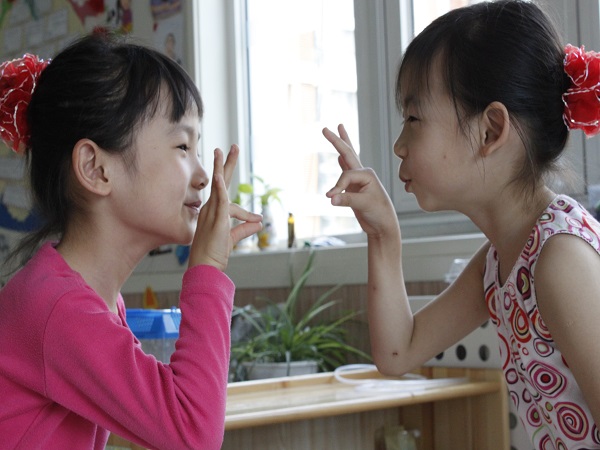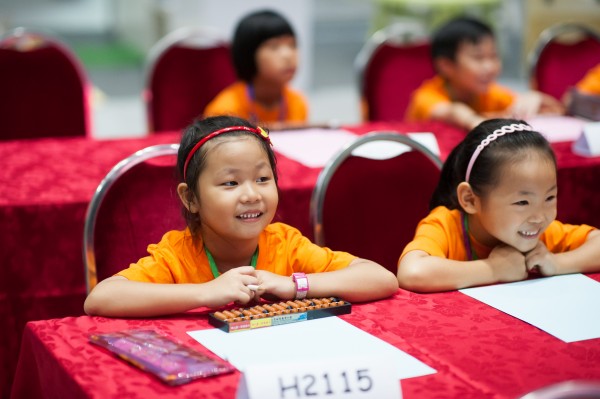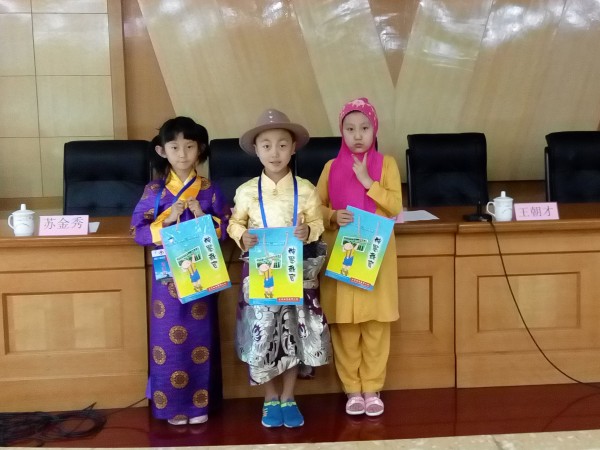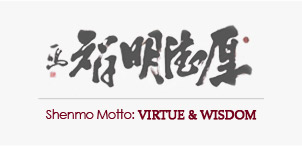SHENMO MOTTO: Virtue & Wisdom
-
Famous teachers talked about the laws of subjects learning
2017-03-06 丨
The writer is from the Ministry of culture development

A learning process of “basic understanding - unskillful - skillful - fully proficient - automatic”
Learning is a progressive process, and there is also a saying “If you know how to handle, it will not be difficult”. A seemingly ordinary learning process is not simple in truth, which hides a plain law of education.
Mianjun Li talked about the abacus mental math
In abacus math practicing, the first stage is “basic understanding”: at the beginning, children are always puzzled, in which teachers and parents need to encourage them frequently, like telling them “it is okay; this will take some time”. “Unskillful” indicates that children need to think deeply and consciously, which is a challenge to children, but once it is overcome, children will enter the third stage—“skillful”.
In “skillful” and “proficient” stage, psychological problem is the main issue, in which children may have inexplicable emotion, ups and downs, and even want to give up repeatedly. In that case, they need encouragement and adjustment. After that they will enter “automatic” stage, in which they comprehend wide knowledge by analogies.
The whole process of learning abacus mental math practices willpower, emotion control and other non-intellectual factors. One will also experience such a “basic understanding - unskillful - skillful - fully proficient - automatic” process in his/her career.
Each stage is a test: it is difficult when you cannot understand it; it is also worrying when you are unskillful at it; when you are skillful but not proficient in it, you will hit a bottleneck—it is hard to break yourself though you have made some achievements, because the challenge and stimulation from the outside are not strong enough. Even if you are proficient in it, it is still challenging. Many students, adults, including the principals and teachers, may stay in the fourth stage. But once you enter the “automatic” stage, it will be essentially different in no matter skills or personal mind.
Learning of abacus, painting, music, etc. is a process of managing and adjusting emotional and psychological factors; after you go through those hardships, when you encounter any other things, you will hold on smoothly and persistently and rarely be disturbed.
The musician and president Tan in the UK talked about music
Piano has a very strict fingering to let people learn the language of music through playing piano, thus expressing their words, emotions and ideas through piano.
When children just get started, although they are able to play piano, it is just a representation at the introductory level, like a half-baked cake. In this stage, the most important thing is to cultivate interests and let children accept the skills intuitively by contacting it to the actual life, thus introducing them to learn piano imperceptibly.
The third stage is “skillful”. Children will be confident because they can play some melody. They are ignorant, and it is an accumulation period. In the first two stages of music learning, visual stimulation and kinesthesis are injected into children to let them know the notes and learn to play piano. While in the third stage, auditory sense contact is strengthened, which is more difficult than visual and kinesthetic sense, because it poses high requirements to memory in order to import it into the brain.
When visual, kinesthetic, and auditory sense can be coordinated simultaneously, it will be very clear for children to know the notes, their corresponding sound and their corresponding keys, that is, proficiency.
In the last stage, which is called “interpretation” stage in music field, one can completely express his/her emotions and ideas in the form of music without any contrived trace. It is an art itself, and also provides others aesthetic perception.
This whole learning process will bring a lot of unexpected “added value”, such as self-confidence, memory, balance abilities between left and right brain, analysis abilities, abilities of overcoming difficulties, perseverance, etc., which are lifetime preciousness.
Calligraphy and painting artist Yiming Luo talked about painting
Painting learning is a process of “basic understanding – skillful - proficient – excellent - automatic”.
Painting is never strange for children. We only need to help children to discover the interest, which is another door opened for them. It doesn’t matter even if their paintings are not beautiful or logical, or the modeling is not accurate.
With more painting, children will be skilled more and more, and the modeling will be accurate; moreover, they will be confident in and enthusiastic about painting, thereby achieving the skillful state.
Speaking of “automatic” state, it is close to the edge of inspiration. The real inspiration is found when one is too skillful to develop further—in the fully proficient state, skills cannot help one improve; in order to find a new realm, one needs to rely on the inspiration.
Before reaching the edge of inspiration, one will sure experience countless distress, self-doubt, or even collapse. At this time, as long as you insist, inspiration will come to you. When practicing one-stroke painting in the form of Chinese ink painting, I retreated for fifteen days. I was in a state of collapse in the first fourteen days; I tried almost all the Chinese painting skills, styles, and colors I knew to express something I pursued—until the fifteenth day, my body was almost overdrawn due to long time of standing, when I suddenly thought that one-stroke painting is a combination of two arts: first, wild scribble (it was at that moment that the inspiration hit me)—nobody had painted in cursive script, so I want to paint the one-stroke painting like writing cursive script; second, freehand brushwork—some people had drawn lotus or horse with only a few strokes, but I made it in one stroke.
When I realized that, it seemed that I don’t have to pursue anything else at skill level, because I have known the results—what I pursued was wild scribble and freehand brushwork. That is the automatic stage.
The process of “basic understanding-unskillful -skillful-fully proficient-automatic” in school running
School running has a process of “startup – development – standardization – guidance – leading - self-consciousness”. The ultimate stage is “self-consciousness”, in which the administrator achieves thorough enlightenment and automation; it is “inaction”, which, however, doesn’t mean the administrator does nothing, but rather to pursue the Golden mean and make things develop in order. (This state, to be specific, refers to number sense in abacus mental math, musicality in music, and inspiration in art—it is difficult to describe this state, so the interpretation may be inaccurate; may readers understand its hidden meaning.)
This is the process of school running, which is the same as and is interconnected with learning of abacus mental math, music, and painting, and so is the personal growth.
Learning is a progressive process, and there is also a saying “If you know how to handle, it will not be difficult”. A seemingly ordinary learning process is not simple in truth, which hides a plain law of education.
Mianjun Li talked about the abacus mental math
In abacus math practicing, the first stage is “basic understanding”: at the beginning, children are always puzzled, in which teachers and parents need to encourage them frequently, like telling them “it is okay; this will take some time”. “Unskillful” indicates that children need to think deeply and consciously, which is a challenge to children, but once it is overcome, children will enter the third stage—“skillful”.
In “skillful” and “proficient” stage, psychological problem is the main issue, in which children may have inexplicable emotion, ups and downs, and even want to give up repeatedly. In that case, they need encouragement and adjustment. After that they will enter “automatic” stage, in which they comprehend wide knowledge by analogies.
The whole process of learning abacus mental math practices willpower, emotion control and other non-intellectual factors. One will also experience such a “basic understanding - unskillful - skillful - fully proficient - automatic” process in his/her career.
Each stage is a test: it is difficult when you cannot understand it; it is also worrying when you are unskillful at it; when you are skillful but not proficient in it, you will hit a bottleneck—it is hard to break yourself though you have made some achievements, because the challenge and stimulation from the outside are not strong enough. Even if you are proficient in it, it is still challenging. Many students, adults, including the principals and teachers, may stay in the fourth stage. But once you enter the “automatic” stage, it will be essentially different in no matter skills or personal mind.
Learning of abacus, painting, music, etc. is a process of managing and adjusting emotional and psychological factors; after you go through those hardships, when you encounter any other things, you will hold on smoothly and persistently and rarely be disturbed.
The musician and president Tan in the UK talked about music
Piano has a very strict fingering to let people learn the language of music through playing piano, thus expressing their words, emotions and ideas through piano.
When children just get started, although they are able to play piano, it is just a representation at the introductory level, like a half-baked cake. In this stage, the most important thing is to cultivate interests and let children accept the skills intuitively by contacting it to the actual life, thus introducing them to learn piano imperceptibly.
The third stage is “skillful”. Children will be confident because they can play some melody. They are ignorant, and it is an accumulation period. In the first two stages of music learning, visual stimulation and kinesthesis are injected into children to let them know the notes and learn to play piano. While in the third stage, auditory sense contact is strengthened, which is more difficult than visual and kinesthetic sense, because it poses high requirements to memory in order to import it into the brain.
When visual, kinesthetic, and auditory sense can be coordinated simultaneously, it will be very clear for children to know the notes, their corresponding sound and their corresponding keys, that is, proficiency.
In the last stage, which is called “interpretation” stage in music field, one can completely express his/her emotions and ideas in the form of music without any contrived trace. It is an art itself, and also provides others aesthetic perception.
This whole learning process will bring a lot of unexpected “added value”, such as self-confidence, memory, balance abilities between left and right brain, analysis abilities, abilities of overcoming difficulties, perseverance, etc., which are lifetime preciousness.
Calligraphy and painting artist Yiming Luo talked about painting
Painting learning is a process of “basic understanding – skillful - proficient – excellent - automatic”.
Painting is never strange for children. We only need to help children to discover the interest, which is another door opened for them. It doesn’t matter even if their paintings are not beautiful or logical, or the modeling is not accurate.
With more painting, children will be skilled more and more, and the modeling will be accurate; moreover, they will be confident in and enthusiastic about painting, thereby achieving the skillful state.
Speaking of “automatic” state, it is close to the edge of inspiration. The real inspiration is found when one is too skillful to develop further—in the fully proficient state, skills cannot help one improve; in order to find a new realm, one needs to rely on the inspiration.
Before reaching the edge of inspiration, one will sure experience countless distress, self-doubt, or even collapse. At this time, as long as you insist, inspiration will come to you. When practicing one-stroke painting in the form of Chinese ink painting, I retreated for fifteen days. I was in a state of collapse in the first fourteen days; I tried almost all the Chinese painting skills, styles, and colors I knew to express something I pursued—until the fifteenth day, my body was almost overdrawn due to long time of standing, when I suddenly thought that one-stroke painting is a combination of two arts: first, wild scribble (it was at that moment that the inspiration hit me)—nobody had painted in cursive script, so I want to paint the one-stroke painting like writing cursive script; second, freehand brushwork—some people had drawn lotus or horse with only a few strokes, but I made it in one stroke.
When I realized that, it seemed that I don’t have to pursue anything else at skill level, because I have known the results—what I pursued was wild scribble and freehand brushwork. That is the automatic stage.
The process of “basic understanding-unskillful -skillful-fully proficient-automatic” in school running
School running has a process of “startup – development – standardization – guidance – leading - self-consciousness”. The ultimate stage is “self-consciousness”, in which the administrator achieves thorough enlightenment and automation; it is “inaction”, which, however, doesn’t mean the administrator does nothing, but rather to pursue the Golden mean and make things develop in order. (This state, to be specific, refers to number sense in abacus mental math, musicality in music, and inspiration in art—it is difficult to describe this state, so the interpretation may be inaccurate; may readers understand its hidden meaning.)
This is the process of school running, which is the same as and is interconnected with learning of abacus mental math, music, and painting, and so is the personal growth.

-
NEXT:
How hard is it to “sit still”? On Jan 05, 2016 >
LATEST

- First Online Shenmo Training for Ru On Mar 29, 2021

- Online Shenmo Entrepreneurship Exchange Meeting On Mar 29, 2021

- First Shenmo Online Abacus Mental M On Feb 03, 2021
EVENTS
Combination of Traditional Culture and Mo On Jun 02, 2020
Shenmo News:Shenmo Nigeria Abacus Mental On Oct 23, 2019
Shenmo News:The delegation of the 1st On Oct 21, 2019







